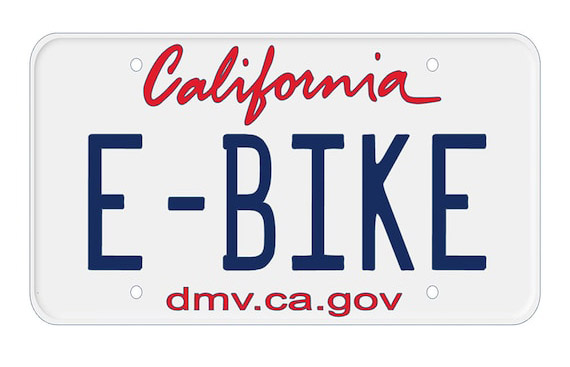As electric bikes (e-bikes) grow in popularity, there have been increasing calls for regulatory frameworks that include licensing and registration requirements, similar to those for motor vehicles or traditional bicycles. While some proponents argue that e-bike licensing can improve safety, enforce rules, and track ownership, there are several compelling reasons to reject or at least delay the implementation of such policies.
1. E-Bikes Are Not Motor Vehicles
One of the key arguments against e-bike licensing is that e-bikes are fundamentally different from motor vehicles. They are typically much slower (often limited to speeds of 20–28 mph) and require far less power to operate than a car or motorcycle. Many e-bikes are classified as bicycles in terms of their size and general operation—pedal assist or throttle-based systems provide electric assistance but don’t replace the need for pedaling altogether.
Licensing systems that equate e-bikes with motor vehicles often fail to acknowledge these critical differences. E-bikes are used for recreational, commuting, and short-distance transportation purposes, not as a substitute for cars, which means they do not pose the same risks or require the same oversight.
2. Barriers to Access
Requiring licensing for e-bikes can create barriers to access, especially for people who rely on them as an affordable mode of transportation. For those living in urban areas, using e-bikes can offer a low-cost alternative to cars, buses, or even public transit. Adding a licensing requirement introduces extra costs (fees, training, etc.) that may discourage adoption, particularly among low-income individuals.
E-bikes have the potential to be a key solution in reducing traffic congestion and lowering carbon emissions. Licensing can add administrative overhead that limits the broad accessibility of this sustainable form of transportation.
3. Overburdening Law Enforcement
E-bike licensing systems, much like those for motor vehicles, would require significant enforcement mechanisms to ensure compliance. Police officers and other law enforcement personnel would need to monitor e-bike riders, verify licenses, and impose fines or penalties for violations. This could divert resources away from more critical issues while adding unnecessary complexity to what should be a simple and straightforward activity—riding a bicycle.
E-bike operators are already subject to existing traffic laws, such as obeying traffic signals and riding in bike lanes where applicable. Additional burdens of registration and licensing could disproportionately target responsible e-bike users, particularly in urban areas where bikes and e-bikes share roads with cars.
4. Impediments to Innovation and Development
The e-bike market is still evolving, with new models and technologies emerging regularly. Imposing licensing requirements too early could stifle innovation by making it harder for new manufacturers to enter the market. It could also discourage small businesses or independent creators from experimenting with novel designs, as they would need to navigate complex regulatory frameworks to bring their products to market.
Moreover, overly restrictive regulations could reduce competition, making e-bikes less affordable for consumers. The free market, with limited regulation, has been a key driver of the e-bike boom, allowing a wide range of designs and styles that cater to different needs and budgets.
5. Public Safety Concerns Are Addressed Through Existing Laws
Many of the concerns raised by proponents of e-bike licensing—such as safety, road use, and pedestrian interactions—can already be addressed through existing laws and policies. Many states and cities already have regulations governing e-bike use, including where they can be ridden, helmet requirements (for certain age groups), and speed limits. These laws can be adjusted or refined as needed without the need to introduce complex licensing systems.
Further, e-bike manufacturers already include safety features (e.g., speed limiters, lights, bells, reflectors) to reduce the risk of accidents. Educating the public on safe e-bike practices—through campaigns, public service announcements, and outreach—can help reduce crashes and injuries without adding an unnecessary layer of bureaucracy.
6. Environmental Benefits Are Undermined
E-bikes are seen as a key solution to the growing problems of urban traffic congestion and environmental degradation. By offering an environmentally friendly alternative to short car trips, e-bikes reduce the carbon footprint of transportation. Licensing requirements could slow the adoption of this cleaner mode of transport, making it more difficult for people to switch from cars to e-bikes.
In fact, excessive regulation could even encourage people to continue relying on personal cars—particularly those in urban areas who are looking for alternatives to traditional driving. Encouraging greater use of e-bikes, rather than adding barriers like licensing, could contribute to efforts to reduce emissions and improve air quality.
7. E-Bike Use Promotes Health and Fitness
While e-bikes are electrically assisted, they still provide significant physical activity. Many riders engage in the pedaling aspect of e-bike use, especially on flatter terrain or longer distances, making e-bikes a valuable tool for increasing physical activity among sedentary individuals. Requiring licensing might dissuade people from choosing e-bikes as an option, especially if the process feels burdensome or intimidating.
Given the growing concerns about sedentary lifestyles and the health benefits of cycling in general, any policies that limit e-bike use could have unintended public health consequences.
Conclusion
While it’s important to regulate the growing e-bike market to ensure safety and fairness, imposing licensing requirements is likely not the best way forward. E-bikes offer numerous societal, environmental, and economic benefits, and introducing complicated and costly licensing systems could hinder their adoption. Existing laws and regulations can be fine-tuned to address public safety without the need for extensive bureaucracy. For e-bikes to reach their full potential in reducing congestion, promoting health, and helping the environment, we need a balanced, flexible approach—one that supports innovation, accessibility, and safety without unnecessary barriers.

